Alireza Norouzi
ReDMark: Framework for Residual Diffusion Watermarking on Deep Networks
Oct 16, 2018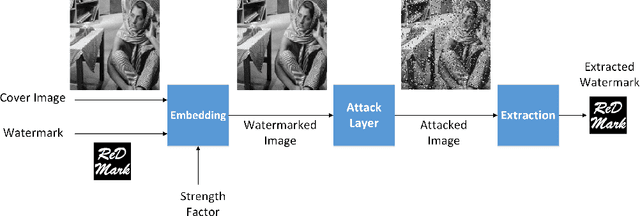
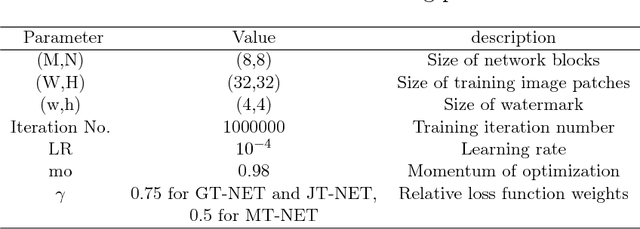
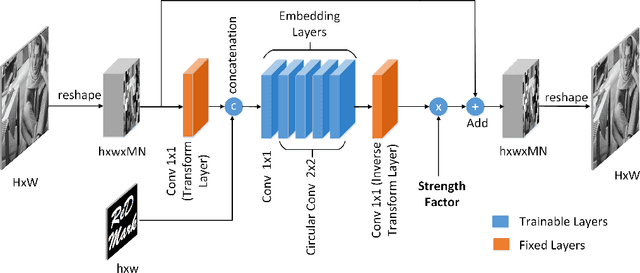

Abstract:Due to the rapid growth of machine learning tools and specifically deep networks in various computer vision and image processing areas, application of Convolutional Neural Networks for watermarking have recently emerged. In this paper, we propose a deep end-to-end diffusion watermarking framework (ReDMark) which can be adapted for any desired transform space. The framework is composed of two Fully Convolutional Neural Networks with the residual structure for embedding and extraction. The whole deep network is trained end-to-end to conduct a blind secure watermarking. The framework is customizable for the level of robustness vs. imperceptibility. It is also adjustable for the trade-off between capacity and robustness. The proposed framework simulates various attacks as a differentiable network layer to facilitate end-to-end training. For JPEG attack, a differentiable approximation is utilized, which drastically improves the watermarking robustness to this attack. Another important characteristic of the proposed framework, which leads to improved security and robustness, is its capability to diffuse watermark information among a relatively wide area of the image. Comparative results versus recent state-of-the-art researches highlight the superiority of the proposed framework in terms of imperceptibility and robustness.
Artistic Instance-Aware Image Filtering by Convolutional Neural Networks
Sep 22, 2018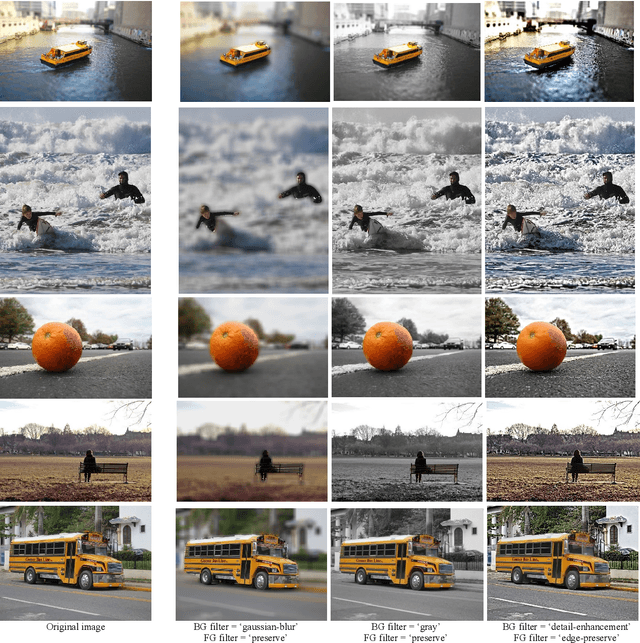

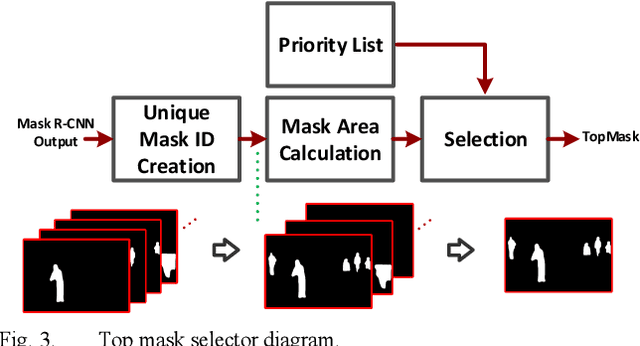
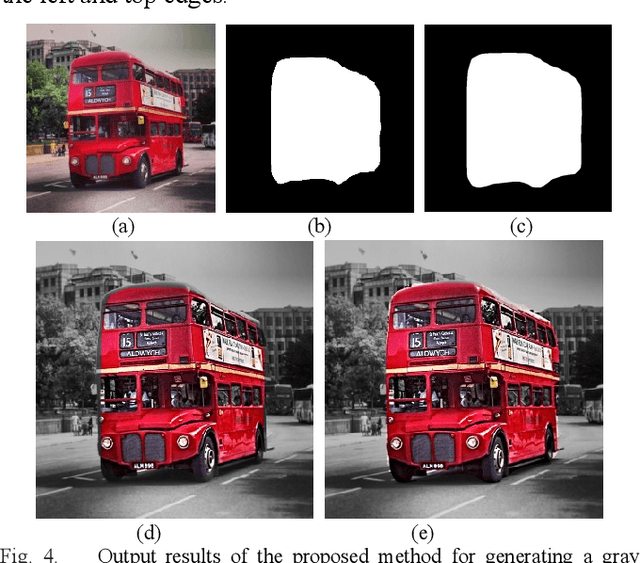
Abstract:In the recent years, public use of artistic effects for editing and beautifying images has encouraged researchers to look for new approaches to this task. Most of the existing methods apply artistic effects to the whole image. Exploitation of neural network vision technologies like object detection and semantic segmentation could be a new viewpoint in this area. In this paper, we utilize an instance segmentation neural network to obtain a class mask for separately filtering the background and foreground of an image. We implement a top prior-mask selection to let us select an object class for filtering purpose. Different artistic effects are used in the filtering process to meet the requirements of a vast variety of users. Also, our method is flexible enough to allow the addition of new filters. We use pre-trained Mask R-CNN instance segmentation on the COCO dataset as the segmentation network. Experimental results on the use of different filters are performed. System's output results show that this novel approach can create satisfying artistic images with fast operation and simple interface.
Left ventricle segmentation By modelling uncertainty in prediction of deep convolutional neural networks and adaptive thresholding inference
Feb 23, 2018



Abstract:Deep neural networks have shown great achievements in solving complex problems. However, there are fundamental problems that limit their real world applications. Lack of measurable criteria for estimating uncertainty in the network outputs is one of these problems. In this paper, we address this limitation by introducing deformation to the network input and measuring the level of stability in the network's output. We calculate simple random transformations to estimate the prediction uncertainty of deep convolutional neural networks. For a real use-case, we apply this method to left ventricle segmentation in MRI cardiac images. We also propose an adaptive thresholding method to consider the deep neural network uncertainty. Experimental results demonstrate state-of-the-art performance and highlight the capabilities of simple methods in conjunction with deep neural networks.
 Add to Chrome
Add to Chrome Add to Firefox
Add to Firefox Add to Edge
Add to Edge